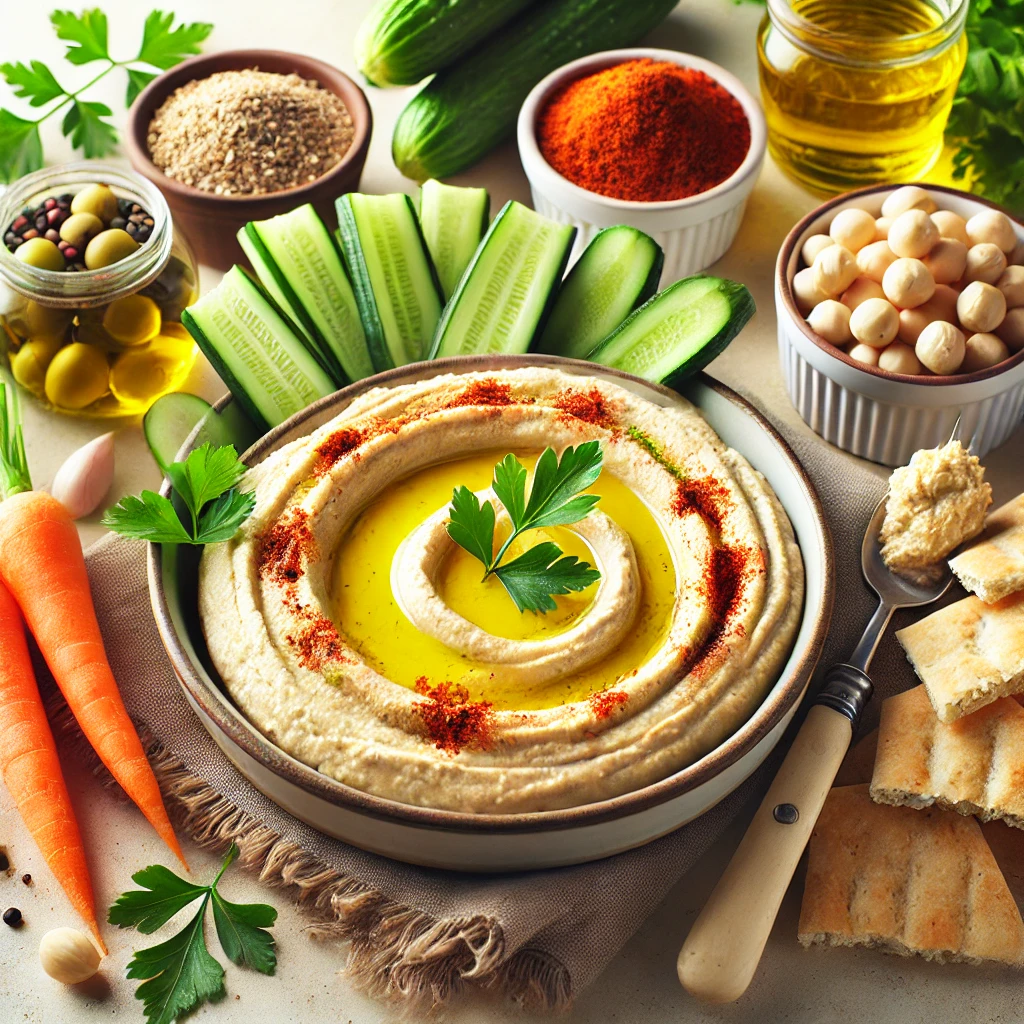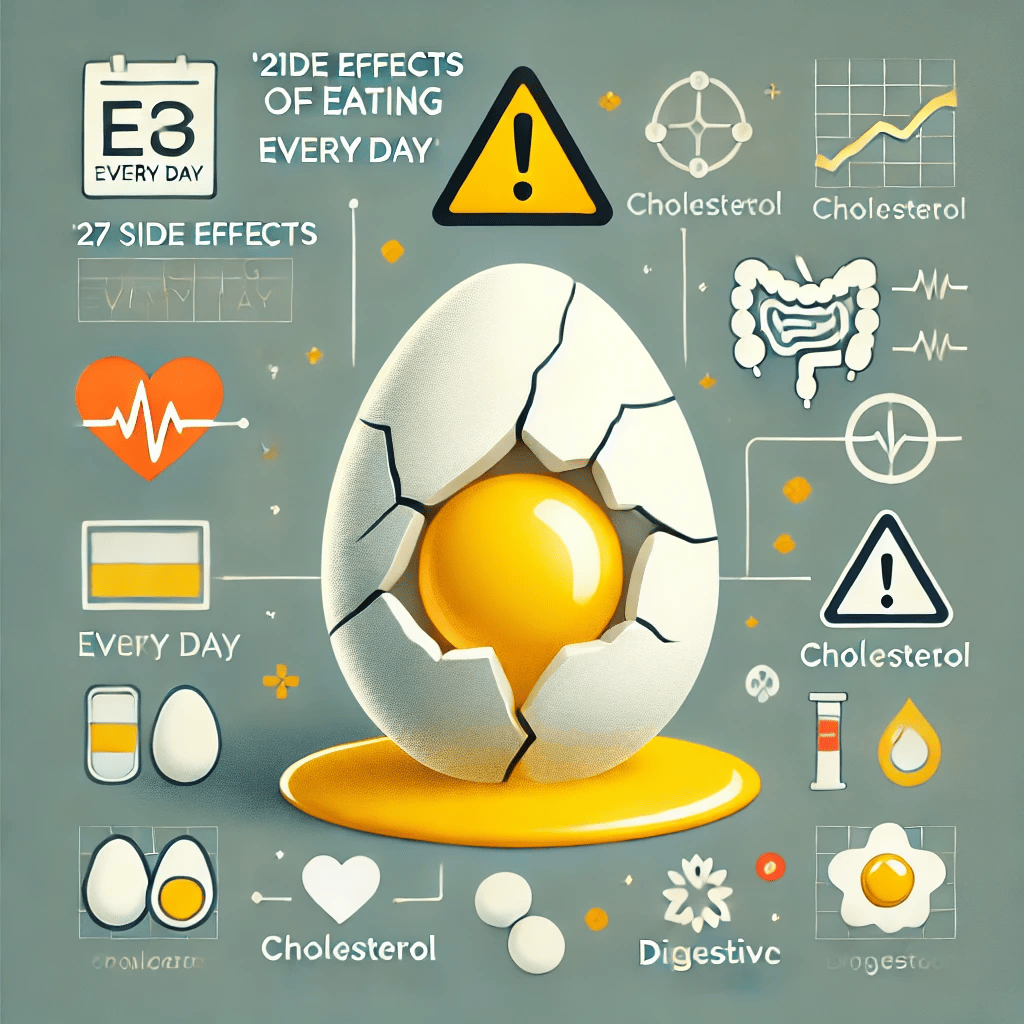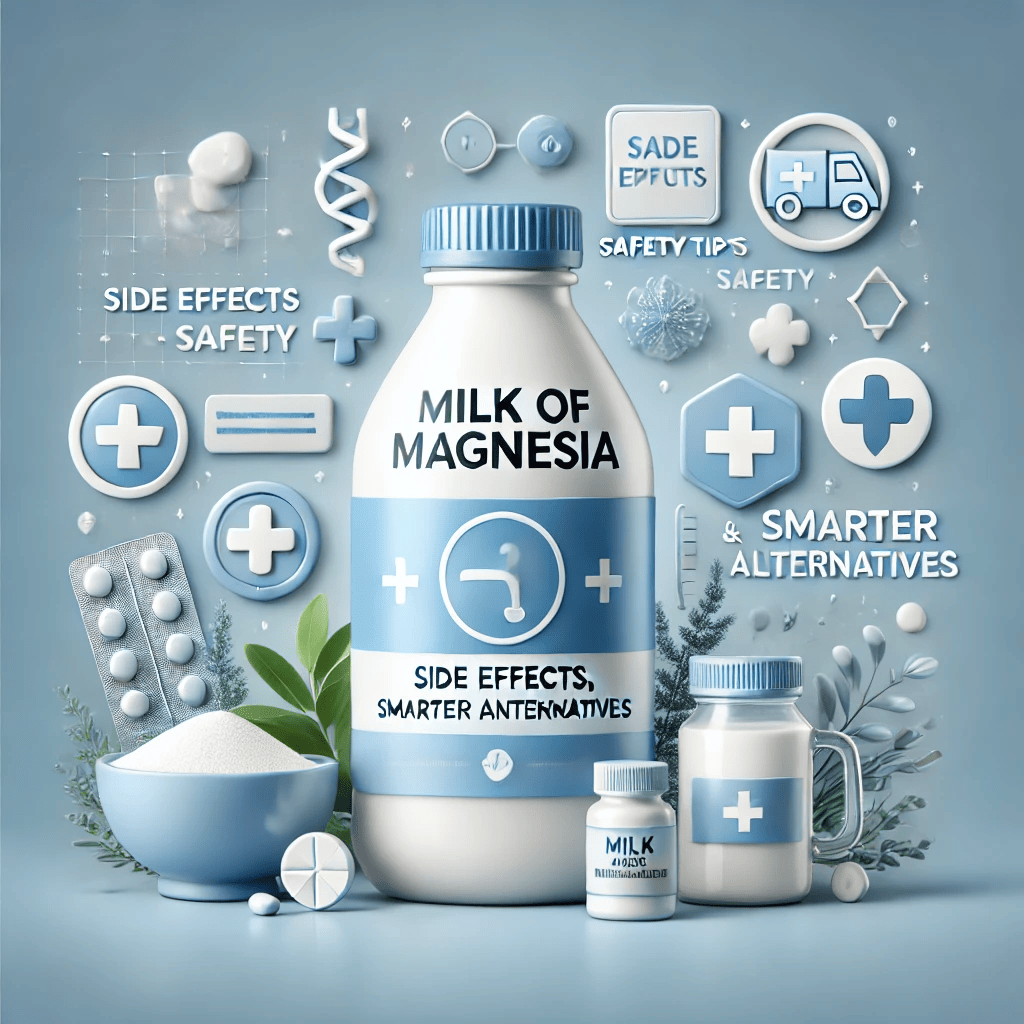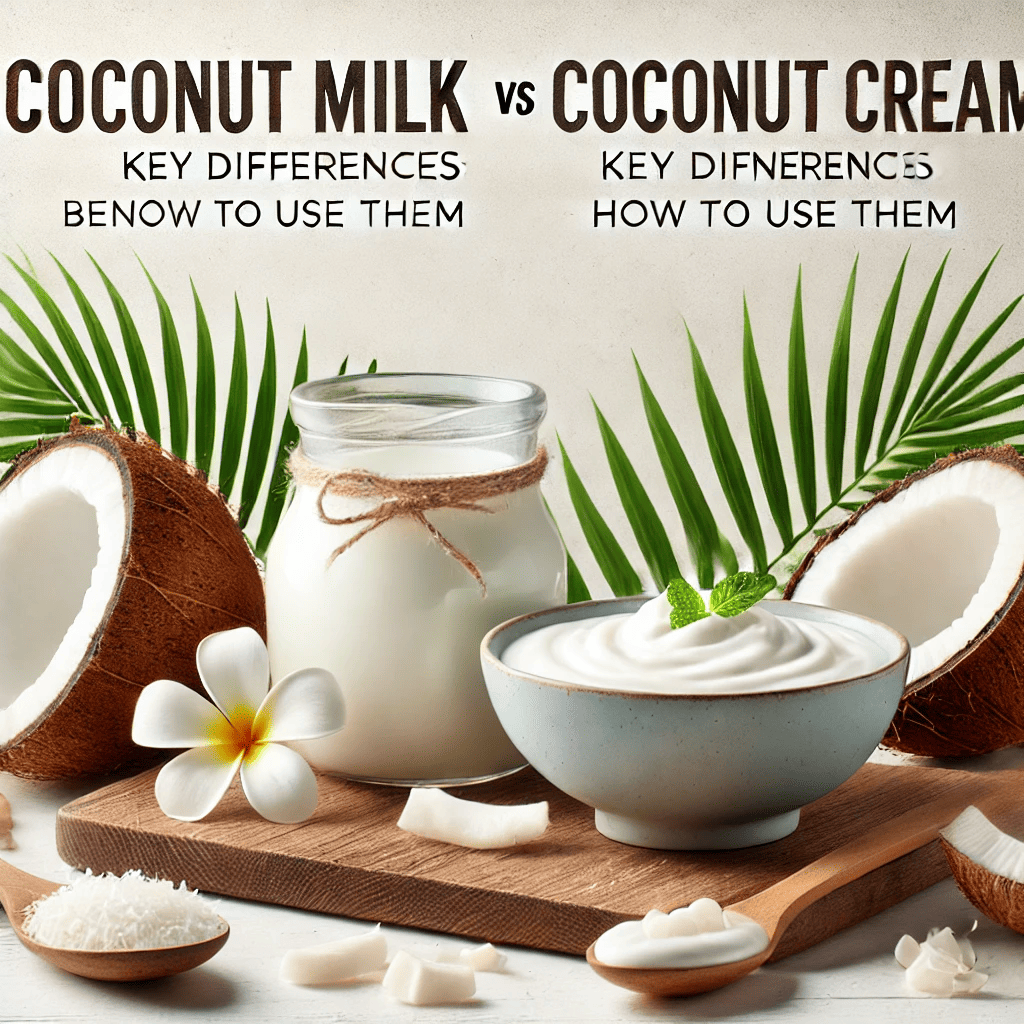Is Hummus Good for You?
Hummus, a creamy dip made primarily from chickpeas, has become a global favorite among health-conscious individuals. But is it truly as healthy as it seems? Let’s dive into the nutritional benefits, potential drawbacks, and how hummus fits into a balanced diet.
What Is Hummus?
Hummus is a Middle Eastern spread traditionally made from a blend of:
- Chickpeas (the primary ingredient, rich in protein and fiber)
- Tahini (sesame seed paste, packed with healthy fats)
- Olive Oil (a source of heart-healthy monounsaturated fats)
- Lemon Juice (adds vitamin C and tangy flavor)
- Garlic (known for its immune-boosting properties)
Quick Fact:
The word “hummus” means “chickpeas” in Arabic.
Nutritional Profile of Hummus
| Nutrient | Per 2 Tablespoons (~30g) | Health Benefits |
|---|---|---|
| Calories | ~70 | Provides energy |
| Protein | ~2 grams | Supports muscle repair and growth |
| Fats | ~5 grams (mostly healthy fats) | Promotes heart health |
| Carbohydrates | ~4 grams | Offers sustained energy |
| Fiber | ~1 gram | Aids digestion and gut health |
| Vitamins & Minerals | Includes folate, iron, and manganese | Supports immunity and brain function |
Why Is Hummus Good for You?
1. Packed with Plant-Based Protein
Hummus is an excellent protein source for vegetarians and vegans. Chickpeas, its main ingredient, are rich in essential amino acids.
2. Supports Digestive Health
The fiber in hummus promotes healthy digestion and helps prevent constipation.
Example:
Eating hummus as a snack with raw veggies can boost fiber intake, supporting gut health.
3. Heart-Healthy Fats
Tahini and olive oil in hummus are rich in unsaturated fats that help lower bad cholesterol (LDL) levels.
4. Aids in Weight Management
Hummus is nutrient-dense but low in calories, making it a satisfying snack.
Tip:
Pair hummus with cucumber slices or carrot sticks for a low-calorie snack under 150 calories.
5. Blood Sugar Regulation
Hummus has a low glycemic index (GI), meaning it releases energy slowly without causing blood sugar spikes.
How Hummus Fits Different Diets
| Diet Type | Can Hummus Be Included? | Why It Works |
|---|---|---|
| Keto | Limited (in moderation) | Moderate carbs, high fat |
| Vegan | Yes | 100% plant-based |
| Paleo | Sometimes (check ingredients) | Aligns with natural eating principles |
| Gluten-Free | Yes | Naturally free from gluten |
Potential Drawbacks of Hummus
While hummus is nutritious, consuming too much can have some drawbacks:
1. High in Calories
- Fact: A large serving can add up quickly due to tahini and olive oil. Stick to 2-4 tablespoons per serving.
2. Sodium Content
- Store-bought hummus may contain added salt. Check labels for low-sodium options.
3. Allergies
- People with sesame allergies should avoid hummus due to tahini.
Homemade vs. Store-Bought Hummus
| Feature | Homemade Hummus | Store-Bought Hummus |
|---|---|---|
| Ingredients | Fully customizable | May contain preservatives |
| Nutritional Value | Can reduce oil and salt | Varies by brand |
| Cost | More affordable | Convenient |
Tip: Make hummus at home with fresh ingredients for maximum nutrition and flavor.
Simple Homemade Hummus Recipe
Ingredients:
- 1 cup cooked chickpeas
- 2 tablespoons tahini
- 2 tablespoons olive oil
- Juice of 1 lemon
- 1 garlic clove
- Salt to taste
Steps:
- Blend all ingredients in a food processor until smooth.
- Adjust seasoning and consistency with water if needed.
Nutritional Info Per Serving:
- Protein: ~3 grams
- Calories: ~80
How to Enjoy Hummus
Hummus is incredibly versatile. Here are some creative ways to include it in your diet:
- As a Dip:
- Pair with veggies like carrots, cucumbers, and bell peppers.
- As a Spread:
- Use it as a healthier alternative to mayonnaise on sandwiches.
- In Salads:
- Drizzle over salads as a creamy dressing substitute.
- In Wraps:
- Add to wraps with grilled veggies and chicken.
Real Example:
A whole-grain wrap with hummus, spinach, and grilled chicken provides ~25g protein.
Unique Insights: Lesser-Known Benefits of Hummus
- Boosts Mood:
- Chickpeas contain tryptophan, a precursor to serotonin, which can improve mood.
- Skin Benefits:
- Olive oil and tahini in hummus are rich in antioxidants that promote healthy skin.
- Eco-Friendly Choice:
- Plant-based and sustainable, hummus has a lower environmental impact compared to animal-based protein snacks.
Hummus Variations to Try
| Variation | Key Ingredient | Nutritional Boost |
|---|---|---|
| Beet Hummus | Beets | High in antioxidants and fiber |
| Avocado Hummus | Avocado | Rich in potassium and healthy fats |
| Spicy Hummus | Red chili flakes | Boosts metabolism |
Hummus: A Deeper Dive into Its Benefits and Uses
6. Rich Source of Antioxidants
Hummus contains ingredients like olive oil, garlic, and lemon juice, which are rich in antioxidants. These compounds protect cells from oxidative damage, reducing the risk of chronic diseases.
Example:
Olive oil in hummus contains polyphenols, which help fight inflammation and promote heart health.
7. Improves Bone Health
Chickpeas are a natural source of calcium, magnesium, and phosphate—minerals essential for strong bones. Adding hummus to your meals supports bone density and reduces the risk of osteoporosis, especially in older adults.
Tip:
Pair hummus with calcium-rich vegetables like broccoli for an added bone-strengthening boost.
Who Should Eat Hummus?
1. Vegans and Vegetarians
Hummus is a plant-based protein source, making it an excellent option for those who avoid meat.
2. Athletes
Athletes can benefit from the balanced protein and carbohydrate profile of hummus, which aids muscle recovery and provides sustained energy.
3. Busy Professionals
As a quick and healthy snack, hummus is perfect for those with a hectic schedule.
Real-Life Use Case:
A professional who skips lunch can carry a small container of hummus with whole-grain crackers. This snack keeps energy levels steady and prevents unhealthy food choices later in the day.
Creative Ways to Use Hummus
1. Breakfast:
- Spread hummus on whole-grain toast and top with sliced avocado.
2. Lunch:
- Add a dollop of hummus to a quinoa salad for extra flavor and nutrition.
3. Snack:
- Use hummus as a dip for roasted chickpeas for a protein-packed snack.
4. Dinner:
- Incorporate hummus into pasta sauces for a creamy, healthy alternative to cream-based sauces.
Example:
Hummus Alfredo: Replace heavy cream with hummus to make a low-fat, protein-rich pasta sauce.
Hummus Around the World
While hummus originated in the Middle East, its variations have been embraced globally:
- Middle Eastern Hummus:
- Traditional recipe with chickpeas, tahini, and olive oil.
- Greek Hummus:
- Often includes extra garlic and herbs like oregano.
- American Hummus:
- Flavored with ingredients like roasted red peppers, sun-dried tomatoes, or chipotle.
Tip:
Experiment with global flavors to keep your hummus experience exciting and diverse.
Hummus and Weight Loss: How It Helps
- Low in Calories, High in Nutrients:
- Hummus is nutrient-dense, meaning you get more nutrition for fewer calories.
- Suppresses Appetite:
- The combination of protein, fiber, and healthy fats keeps you feeling full longer.
- Reduces Snacking:
- Pairing hummus with vegetables provides a satisfying, low-calorie alternative to chips or cookies.
Quick Fact:
A study in Nutrition Journal found that people who consume hummus regularly have a lower body mass index (BMI) than those who don’t.
Store-Bought Hummus: What to Watch For
1. Ingredients to Check:
- Look for minimal additives like preservatives or excess oils.
- Avoid brands with artificial flavors.
2. Sodium Levels:
- Choose low-sodium options to reduce your daily salt intake.
3. Serving Size:
- Stick to 2-4 tablespoons to avoid overeating.
Example:
Brand A’s hummus has 250mg of sodium per serving, while Brand B offers a low-sodium option with just 80mg. Always compare labels to choose the healthier alternative.
Pairing Hummus with Superfoods
To maximize the health benefits of hummus, pair it with nutrient-dense foods:
| Food | Why It’s a Great Pair |
|---|---|
| Carrots | Rich in beta-carotene for skin health. |
| Bell Peppers | Loaded with vitamin C to boost immunity. |
| Cucumber | Hydrating and low-calorie option. |
| Whole-Grain Bread | Adds complex carbs for sustained energy. |
Pro Tip:
For a nutrient-dense platter, serve hummus with a mix of colorful vegetables and whole-grain pita bread.
Can You Eat Hummus Every Day?
Yes! Including hummus daily in moderate amounts (2-4 tablespoons) can:
- Support heart health.
- Aid digestion.
- Help in weight management.
However, balance is key. Overindulgence can lead to excessive calorie or fat intake, especially with store-bought varieties.
Real-Life Example:
A fitness enthusiast who consumes 3 tablespoons of hummus daily with fresh veggies can maintain a balanced diet while meeting protein and fiber goals.
Conclusion
Hummus is more than just a tasty dip—it’s a versatile, nutrient-packed addition to any diet. Whether you’re looking to improve digestion, boost heart health, or find a satisfying snack, hummus fits the bill. By making mindful choices and incorporating it creatively into meals, you can enjoy its numerous health benefits without compromising on taste.




